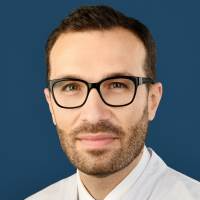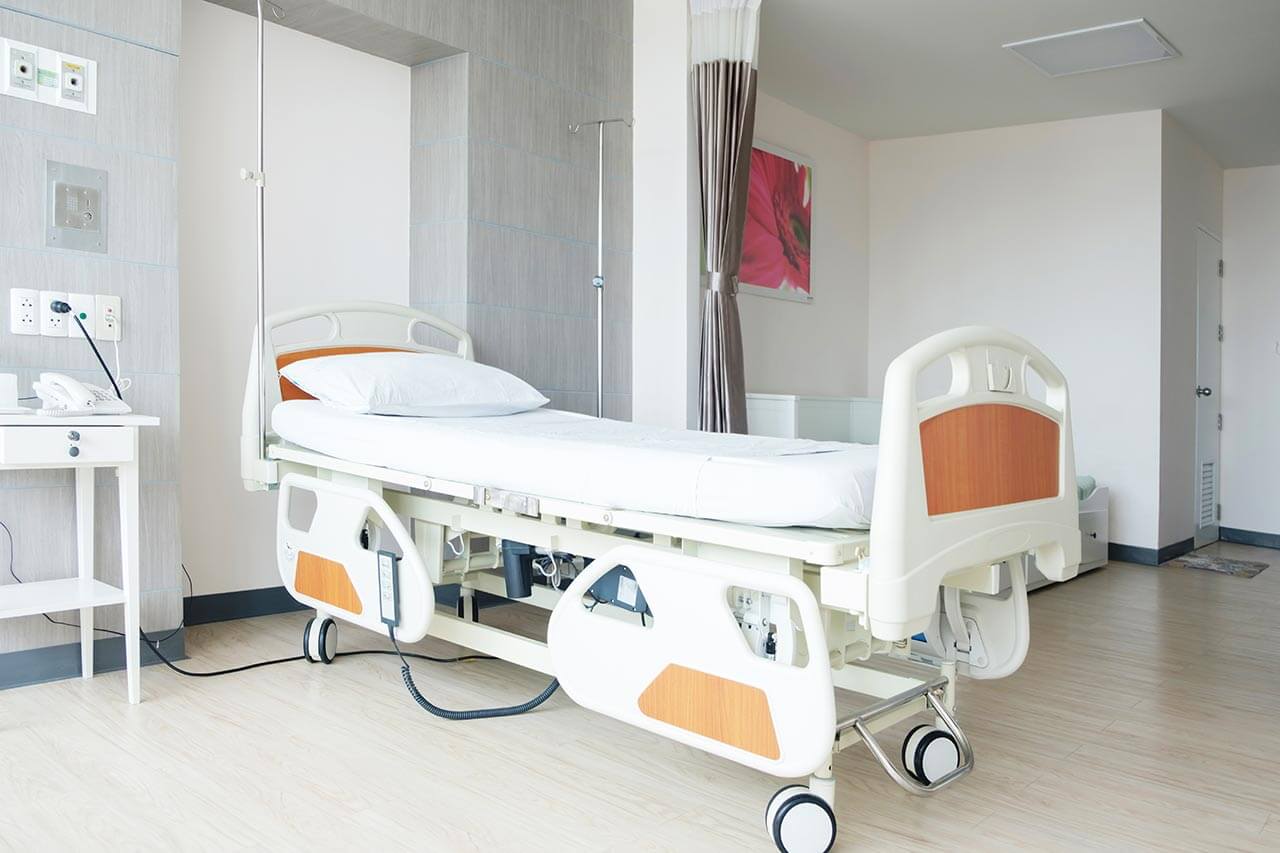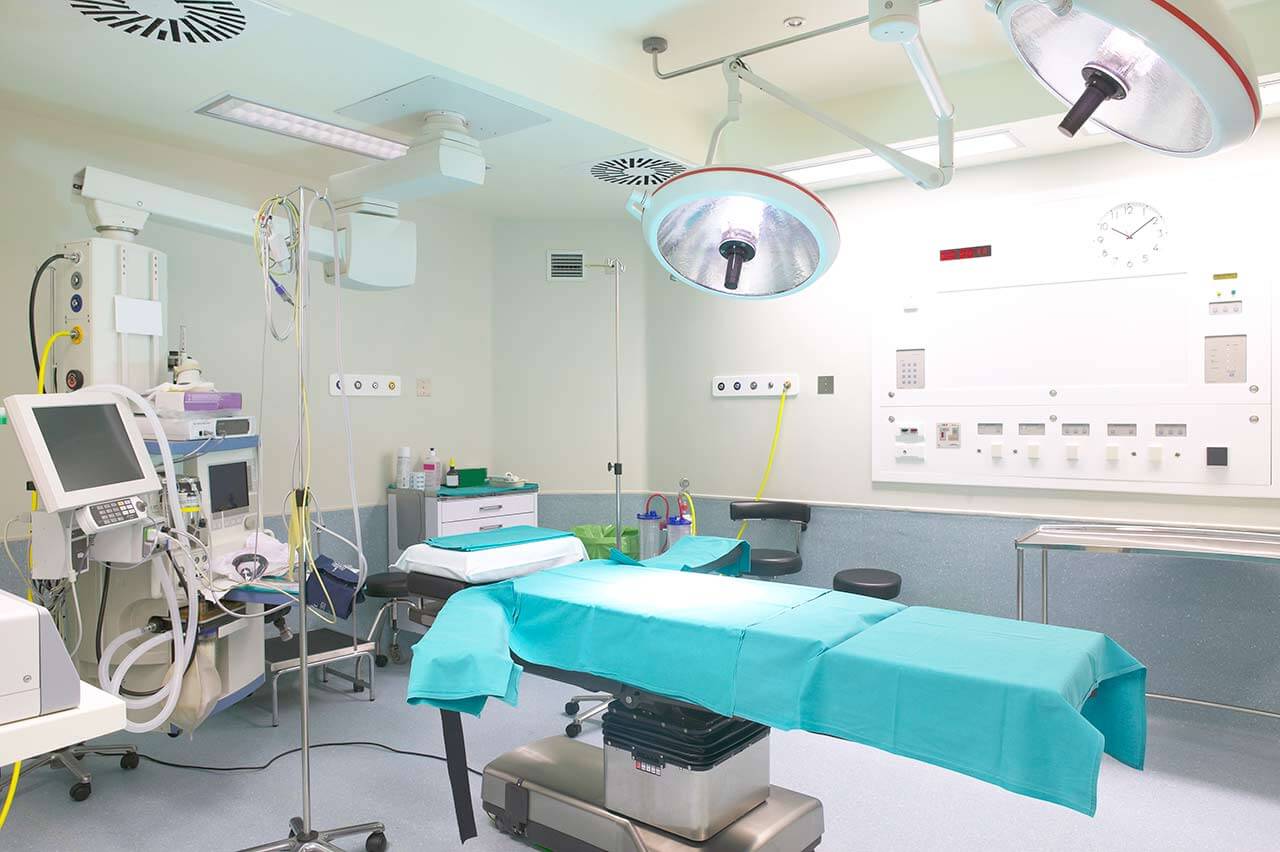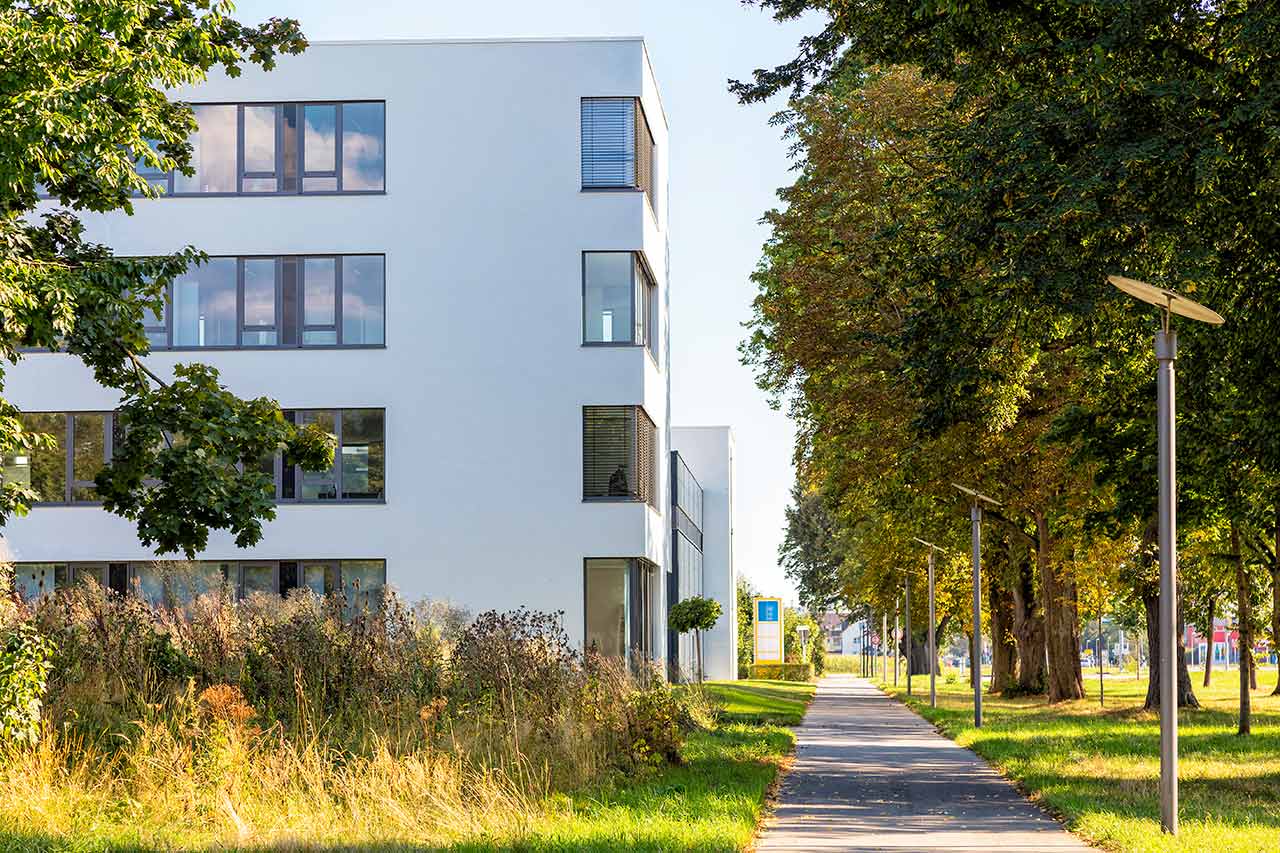
About the Department of Adult and Pediatric Urology at Prosper Hospital Recklinghausen
The Department of Adult and Pediatric Urology at the Prosper Hospital Recklinghausen offers all the options of modern medicine for men with diseases of the reproductive system, including boys, as well as women and men with pathologies of the urinary system. The department's doctors specialize in the treatment of prostate, penile, testicular, and epididymal cancers. Advanced techniques are available here to provide medical care to men with benign prostatic hyperplasia. Another important focus for the department's urologists is laser therapy for kidney stone disease. In the field of pediatric urology, the main attention is paid to the repair of congenital malformations of the urogenital system in boys. The department has state-of-the-art operating rooms with the necessary equipment for laparoscopic and robot-assisted interventions using the innovative da Vinci surgical system. Many interventions are performed on an outpatient basis without a mandatory hospital stay. More than 2,700 inpatients and about 2,450 outpatients are treated at the medical facility every year. A motivated and highly competent team of doctors and nursing staff takes care of the patients' health, successfully applying all resources and their professionalism to achieve the best treatment outcomes. The Head Physician of the department is PD Dr. med. Marko Brock.
The department has a specialized Robotic Surgery Center, where minimally invasive endoscopic procedures are performed. Robot-assisted interventions using the da Vinci surgical system give excellent results in the treatment of prostate cancer, kidney tumors, including large ones, renal artery stenosis, and other urologic pathologies. Kidney stone removal is also performed using minimally invasive techniques. Although the operation is performed using a robotic system, the entire process is carefully controlled by the surgeon, who is sitting at a special console on the device during the operation. The doctor gives commands to the robotic surgeon, who performs actions with the help of special "slave manipulators". The operation requires only a few small skin incisions, which the robot performs with pinpoint precision. One of the "slave manipulators" of the da Vinci surgical system is equipped with a camera that transmits high-resolution 3D images with multiple zooms to a large screen. Thus, the surgeon can clearly see the operating field, including the smallest blood vessels, which contributes to the preservation of functionally important anatomical structures. For example, when performing prostatectomy, a high-quality image of the operating field avoids damage to the neurovascular bundles of the penis, thanks to which the man retains an erection, which is much more difficult to achieve with classical open surgery. Important advantages of robot-assisted surgery are the absence of severe bleeding during the operation and mild postoperative pain. Additionally, small incisions lead to excellent cosmetic results. A hospital stay after da Vinci robot-assisted surgery is minimal and lasts just a few days.
The department specializes in the treatment of benign prostatic hyperplasia. To treat this pathology, the doctors use modern laser technology, namely the latest-generation Vela XL thulium laser. It is worth noting that the department uses this technology to treat prostate adenoma of any size, which is not possible in all German medical centers. The surgeon approaches the enlarged prostate through the urethra. The thulium laser has excellent coagulation properties, which improve the visibility of the surgical field. Due to this, patients retain the bladder sphincter, damage to which causes urinary disorders. In addition, the shallow depth of laser penetration into the tissue in combination with the optimal operating wavelength avoids damage to the nerve endings of the prostate gland, responsible for erection. Upon the completion of the operation, a catheter is inserted into the urethra, with the help of which the bladder is flushed for several days. The patient can leave the hospital 2-4 days after the operation, after which they will need follow-up monitoring to prevent postoperative complications (bleeding, infections, etc.). The department's medical team demonstrates excellent results in prostate adenoma treatment using the thulium laser.
The department's urologists also have advanced techniques for the treatment of kidney stone disease. Patients with this suspected pathology are diagnosed in cooperation with radiologists. The diagnostic protocol may include digital X-ray scans, low-dose CT with 3D reconstruction, magnetic resonance imaging of the kidneys, kidney scintigraphy, and other tests. Once the diagnosis is confirmed, doctors proceed with treatment, which largely depends on the size and chemical composition of the stones. As a rule, stones up to 5-6 mm in size come out naturally through urine with dietary adjustments, medications, and proper hydration. When large stones are found, it is often impossible to do so without interventional treatment. The department's specialists offer patients such minimally invasive options for the treatment of kidney stone disease as laser stone fragmentation (contact laser lithotripsy) and mini-percutaneous nephrolithotripsy. Following the interventional procedure, the patient receives recommendations to prevent recurrence, which causes the repeated formation of new stones in the urinary system.
The department has at its disposal advanced technical equipment for effective but, at the same time, sparing treatment of urological pathologies of varying severity. The department's doctors have a wealth of experience and deep expert knowledge, which allows them to guarantee each patient personalized medical care that meets the highest standards of modern medicine.
The department's key clinical focuses include:
- Minimally invasive radical prostatectomy using the da Vinci surgical system (with the preservation of nerve endings and erectile function)
- Minimally invasive kidney surgery and renal pelvic plastic repair: conventional laparoscopic procedures and interventions using the da Vinci surgical system
- Transurethral ablation for bladder tumors through the urethral channel using mono- and bipolar catheters and laser en bloc resection
- Cystectomy (bladder removal surgery) in both men and women with the preservation of blood vessels and nerves, as well as all modern methods of urinary diversion
- Testicular tumor surgical removal, including surgical removal of lymph node metastases in the abdominal cavity
- Laser therapy (holmium and thulium lasers) for benign prostatic hyperplasia
- Minimally invasive removal of kidney and ureteral stones: contact laser lithotripsy and mini-percutaneous nephrolithotripsy
- Surgical treatment of urinary incontinence in men and women: implantation of adjustable sphincter systems (ATOMS®), artificial sphincters (AMS® 800), Advance®, Obtryx®, and other sling system implantation in men and women
- Comprehensive pelvic floor reconstruction for pelvic organ prolapse (in collaboration with gynecologists and coloproctologists)
- Penile prosthesis implantation (AMS® 700)
- Penile curvature correction
- Conservative and surgical treatment of pediatric urologic conditions: cryptorchidism, varicocele, phimosis, vesicoureteral reflux, enuresis, and other pathologies
- Other medical services
Curriculum vitae
Higher Education and Postgraduate Training
- 2001 - 2007 Medical studies, University of Hamburg.
- 2005 Medical training in Surgery and Oncology, Johns Hopkins University.
- 2008 Thesis defense, Department of Neurosurgery, University Hospital Hamburg-Eppendorf.
- 2016 Venia Docendi and Venia Legendi, Ruhr University Bochum.
Medical Practice
- January 2013 - February 2013 Assistant Physician, Marien Hospital Herne.
- February 2014 - April 2014 Physician, Marien Hospital Herne.
- April 2014 - December 2018 Senior Physician, Marien Hospital Herne.
- January 2019 - January 2021 Managing Senior Physician, Marien Hospital Herne.
- Since January 2021 Head Physician, Department of Adult and Pediatric Urology, Prosper Hospital Recklinghausen.
Awards and Honors
- Paul Mellin Memorial Prize, North Rhine-Westphalian Society of Urology (NRWGU).
- January 2013 Poster Award, Ruhr University Bochum.
Memberships in Professional Societies
- Fellowship of the European Board of Urology (FEBU).
Photo of the doctor: (c) Prosper-Hospital Recklinghausen




